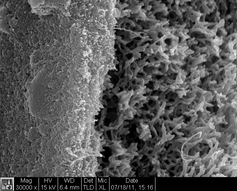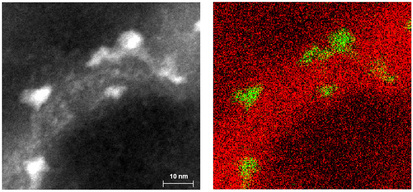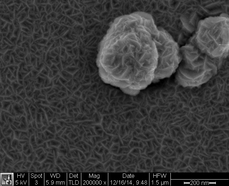Our mission: To develop, characterize, and test new materials and separation processes to address the global environmental challenges of our day.
Our Approach: Using experimental materials science techniques, our lab develops new composite nanomaterials to form membranes, electrodes, sorbents, and other porous and electrochemically active materials used in separation processes. We characterize and test these materials in simulated environmental conditions to gauge their ability to meet real world challenges. Membranes developed in our lab are focused on water filtration, desalination, CO2 capture, and aerosol filtration. The focus of our sorbent development is on groundwater pollutant remediation, gas capture, micropollutant removal, and heavy metal removal. We often combine electrochemistry with separations processes to achieve separations that are otherwise not possible, to degrade contaminants in-situ, or to react compounds while purifying them. Pivotal to our approach is our interaction between academic institutions, government labs, First Nations groups, and private industry. This balanced approach provides us with an understanding of real-world constraints and needs, while pushing the known boundaries and discovering possible applications of new materials.
Our Approach: Using experimental materials science techniques, our lab develops new composite nanomaterials to form membranes, electrodes, sorbents, and other porous and electrochemically active materials used in separation processes. We characterize and test these materials in simulated environmental conditions to gauge their ability to meet real world challenges. Membranes developed in our lab are focused on water filtration, desalination, CO2 capture, and aerosol filtration. The focus of our sorbent development is on groundwater pollutant remediation, gas capture, micropollutant removal, and heavy metal removal. We often combine electrochemistry with separations processes to achieve separations that are otherwise not possible, to degrade contaminants in-situ, or to react compounds while purifying them. Pivotal to our approach is our interaction between academic institutions, government labs, First Nations groups, and private industry. This balanced approach provides us with an understanding of real-world constraints and needs, while pushing the known boundaries and discovering possible applications of new materials.
Join us in developing material innovations to address the greatest challenges facing our environment
We are always looking for motivated prospective PhD and Masters students with backgrounds in chemical engineering, electrochemistry and electrochemical engineering, environmental engineering, chemistry, materials science, and/or physics.
We are always looking for motivated prospective PhD and Masters students with backgrounds in chemical engineering, electrochemistry and electrochemical engineering, environmental engineering, chemistry, materials science, and/or physics.




